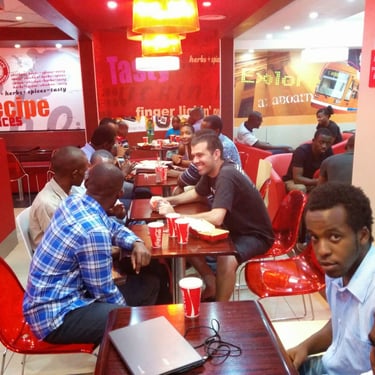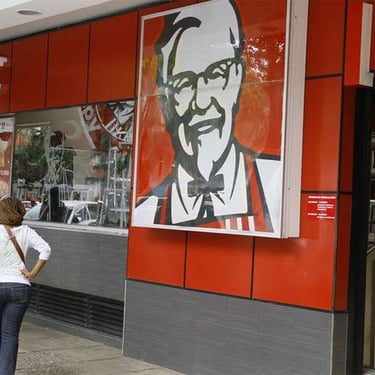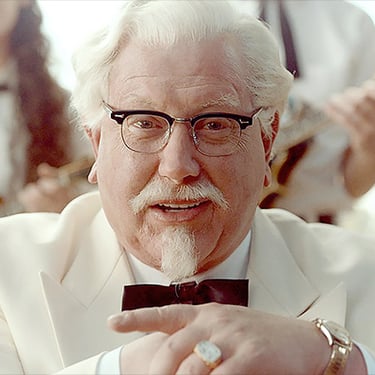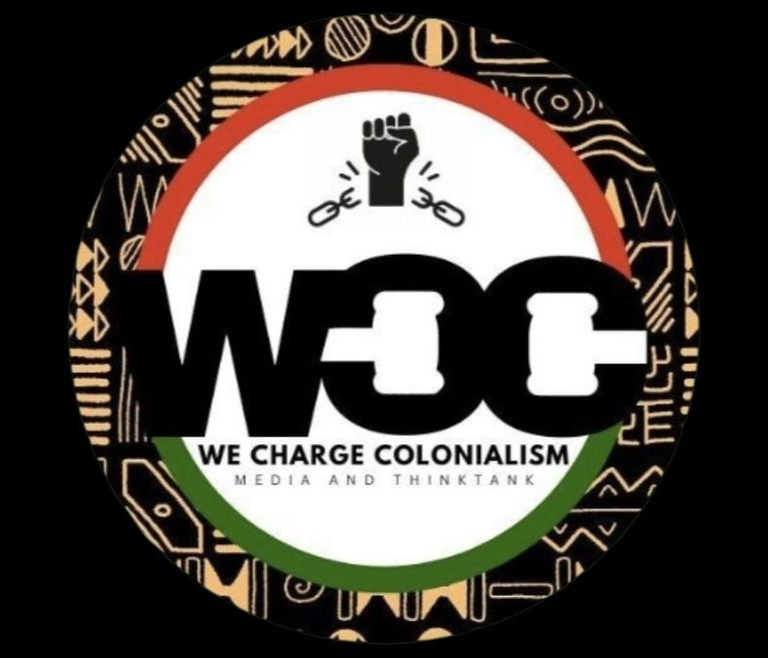Kenya and KFC - Neocolonalism in Full Effect
How fast food for the colonized echos powerlessness



The 1960's was a powerful decade for Afrikan people across the globe. Several Afrikan countries broke from colonial rule. Not only that, there was a sense of Afrikan pride in the diaspora. Black militancy was on the rise and so-called powers such as France, Britain, and the United States was losing its grip of control when it comes to melanated people. Because of such actions, world oppressors had to do some serious adjusting. Besides blatant steps such as assassinating some of our revolutionary leaders of those movements, the European nations went to the drawing board to defuse the rise of Afrika as whole and its people.
One of the ways and tricks enemies used to keep Afrikan people in their wraps obviously is Neo-Colonialism. Control from the outside. Last year I did a piece on how some of the major establishments in Kenya are run by foreigners. Which is why it should be of no surprise that Kentucky Fried Chicken made its way to the country. With their origins in America, KFC has several branches in Kenya. Fries (chips as the locals call them) is a favorite among the natives. Recently KFC caused controversy when they temporarily ceased the cooking of fries in Kenya due to a lack of imported potatoes. In doing so, they exposed themselves as many Kenyans did not know the fries were a result of shipments from a foreign land.
As we should know by now due to the thievery of Afrika by Western powers, many of its countries are poor. Not resource-wise but capital. Many people struggle to work and survive off $5.00 USD per day if they are lucky. Kenya is no different. You can find in the city of Nairobi with millions of people hustling and bustling to make ends means. They have hundreds of thousands of acres of land in which people create crops and farm. So what led this decision by Yums Brands to start their franchises in areas outside of U.S., in particularly Afrika? It's easy. Capitalism! Which is something American seems to only know about but we as Afrika people continue to allow it.
What made matters worse is the restaurant as a substitute offered Ugali which is the most popular dish in Eastern Afrika. It's a soft corn mix that goes with meat and other vegetables. Let me guess....'They are poor Africans who should be happy with anything we give' is probably the thought process they had. Even if some customers would have agreed to it, it probably would have cost three times the amount a local shop would serve it for. Remember when I mentioned Kenyans might make $5.00 a day? Even with KFC being a U.S. chain, the prices are hardly different despite the struggles of the people here. So one meal literally can equate to someone's salary for the whole day.
This is why we must be careful about so-called developments in Afrika. We are to blame to a degree on a scale for allowing such global gentrification. We trade in resources for feel-good infrastructures such as skyscrapers, luxuries, and FAST FOOD to feel be part of the world-class. Not knowing, in the long run, it puts your nation in more and more debt. The people of Kenya are starting to realize this as they went Social Media to showcase their displeasure. KFC since has responded by saying in exact quotes "although we currently import our French fries, there is an opportunity to source the potatoes from a local supplier that meets the global KFC quality and safety specifications in the near future." But as our hero Malcolm X taught us promises and words means nothing when it's not put into action.
ReplyForward
